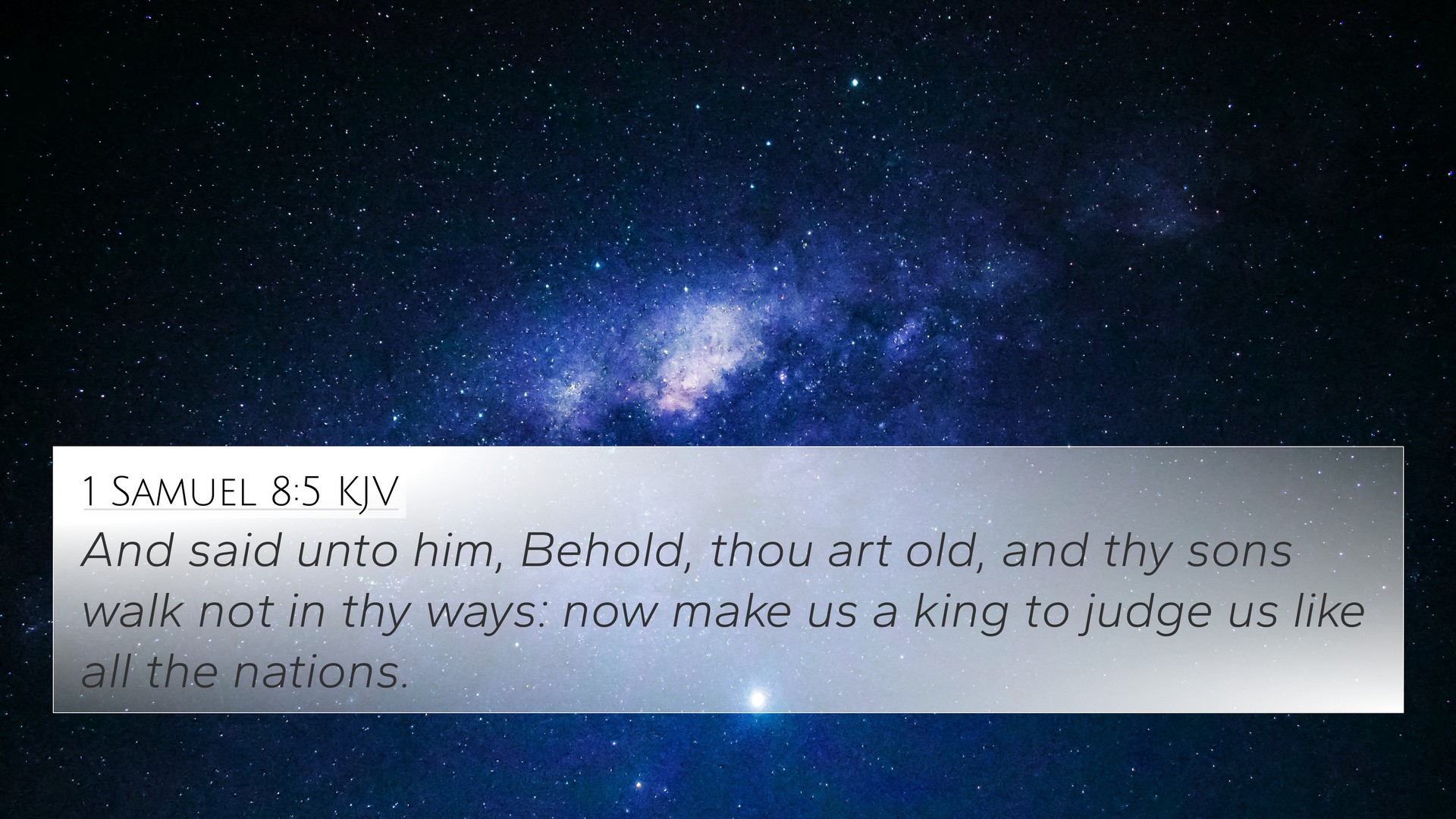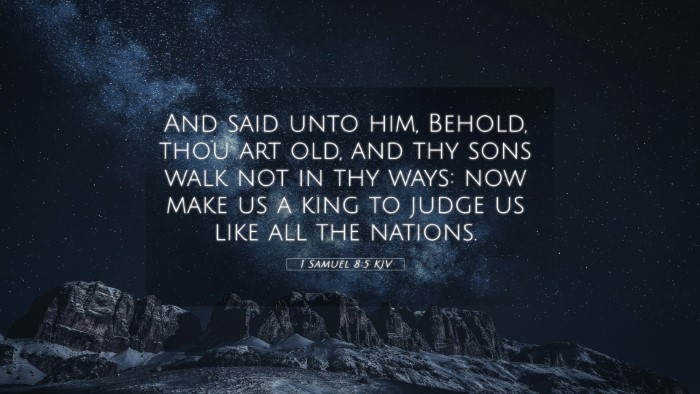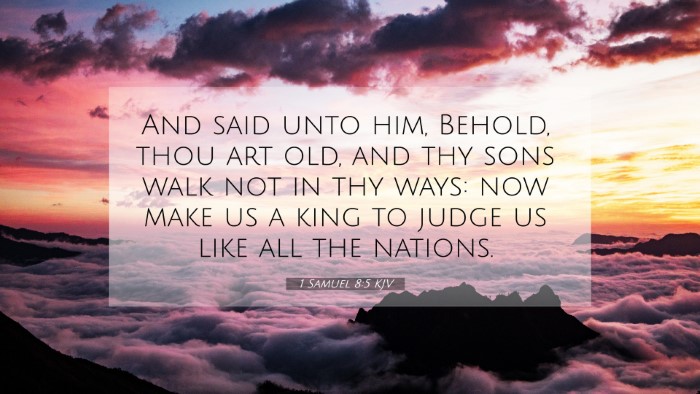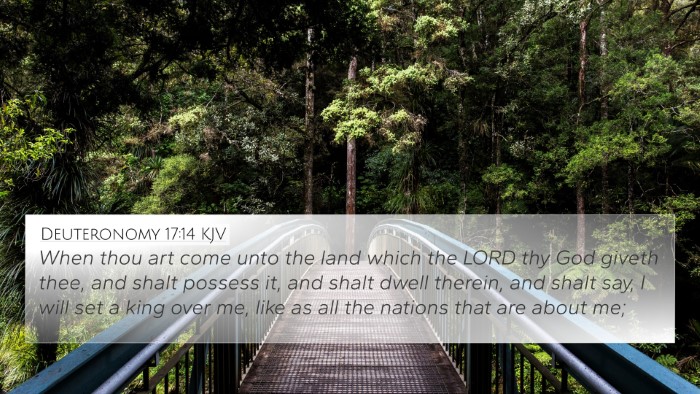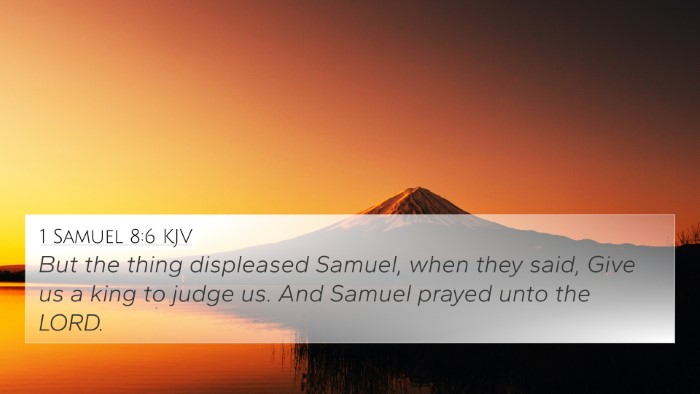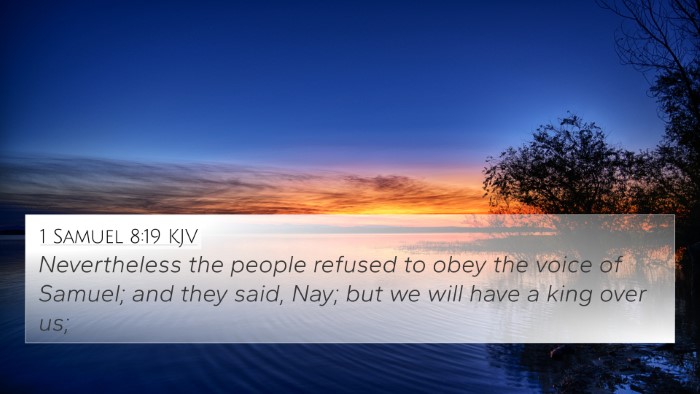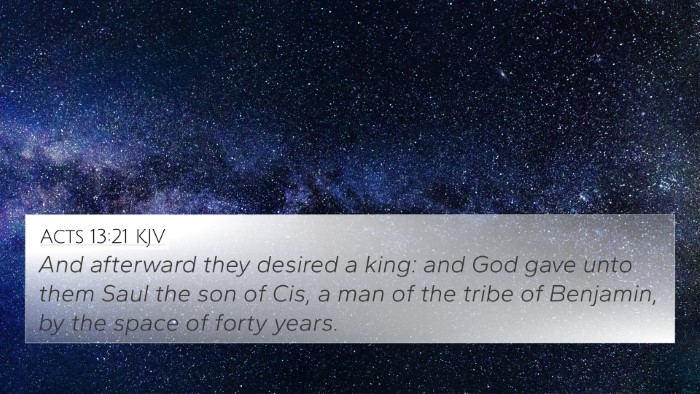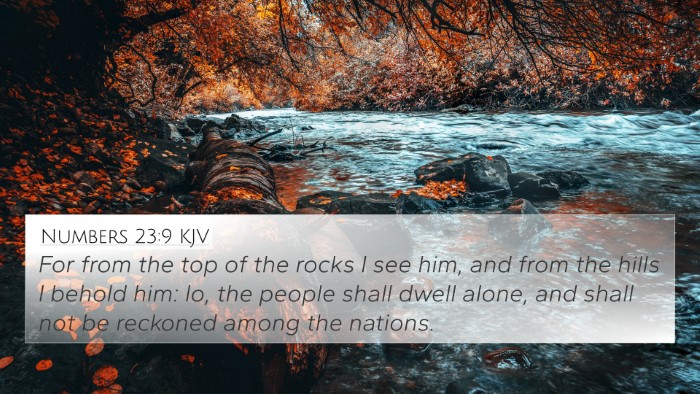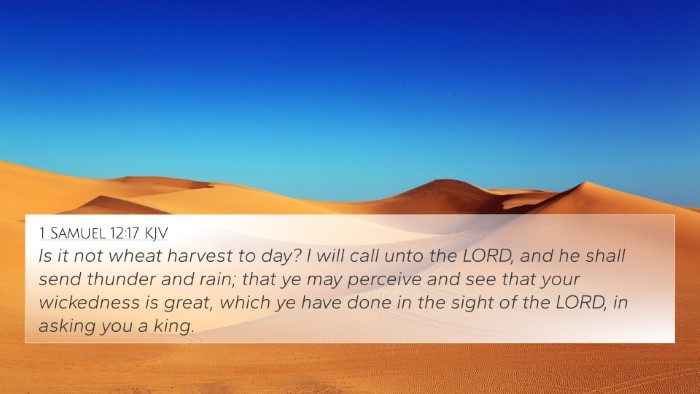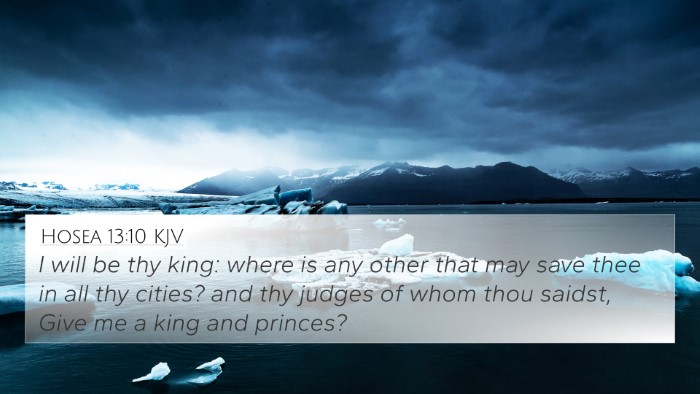Understanding 1 Samuel 8:5
Verse: 1 Samuel 8:5
This verse references a pivotal moment in Israel's history when the people demand a king to rule over them, someone to lead them like other nations. The request signifies a shift from the theocratic governance where God was their king to a human monarch.
Summary of Commentary Insights
Matthew Henry's Commentary
Henry emphasizes that the Israelites’ request for a king arises from their desire to conform to the practices of neighboring nations. Despite having God as their sovereign, they sought to be like others, revealing a lack of faith and trust in God's provision and leadership. This request not only highlights their dissatisfaction but also foreshadows the difficulties of human governance.
Albert Barnes' Commentary
Barnes points out that the elders’ approach to Samuel shows a desire for outward stability and security from a visible leader rather than retaining their unique identity as a nation under God. He explains that this change is a rejection of God's radical ordering and a step towards worldly governance, reflecting humanity's frequent struggles with faithfulness to divine directives.
Adam Clarke's Commentary
Clarke discusses the implications of their request noting that it stems from a practical viewpoint of governance during turbulent times. He elaborates on how this reflects a misunderstanding of God’s governance and its benefits. Clarke asserts that the desire for a king reflects a social and spiritual decline as they shift away from divine authority towards a superficial imitation of surrounding nations.
Thematic Connections and Biblical Cross-References
The request for a human king opens up a theme of divine authority vs. human governance throughout the Bible. Some relevant cross-references that illuminate this theme include:
- 1 Samuel 10:19 - The people's rejection of God's kingship leads to their appointed king's selection.
- 1 Samuel 12:12 - The reminder of God's deliverance and their choice to request a king.
- Deuteronomy 17:14-15 - God's instructions on appointing a king over Israel.
- 1 Samuel 13:11-12 - Saul’s early reign exemplifies the difficulties of failing to adhere to God's will.
- Jeremiah 2:13 - Reflects on Israel's abandonment of the true God for broken systems.
- Luke 19:14 - The rejection of Christ as king mirrors Israel's sentiment in 1 Samuel 8:5.
- John 18:36 - Jesus clarifies His kingdom is not of this world, contrasting to the desire for a worldly king.
- Revelation 19:16 - Jesus as the King of Kings serves as the ultimate fulfillment of what Israel truly needed.
- 1 Peter 2:9 - Christians are called a royal priesthood, illustrating the shift back to divine governance.
- Psalms 146:3-4 - A reminder not to trust in earthly rulers but to place hope in the Lord.
Conclusion
1 Samuel 8:5 serves as a crucial reminder of the tension between divine authority and human desires for leadership. It illustrates the complexities in religious leadership and the need to discern God's will from surrounding societal pressures. As believers, understanding the connections between this verse and others deepens our comprehension of biblical themes and aligns with the tools for Bible cross-referencing.
SEO Keywords Usage
In studying 1 Samuel 8:5, readers can explore:
- Bible verse cross-references to gain deeper insights into the narrative of kingship.
- Connections between Bible verses to understand the recurring theme of God's sovereignty.
- Linking Bible scriptures offers a holistic view of Israel's history and God's intent.
- Comparative Bible verse analysis helps in drawing parallels between human decisions and divine expectations.
- Cross-referencing Biblical texts aids in exploring the consequences of the Israelites' desire for a king.
- Thematic Bible verse connections enrich the study of governance in biblical times.
- Bible verses that relate to each other pull together a web of contexts around kingship.
This examination can inform your Bible study method, aiding in developing a comprehensive understanding of scripture.
